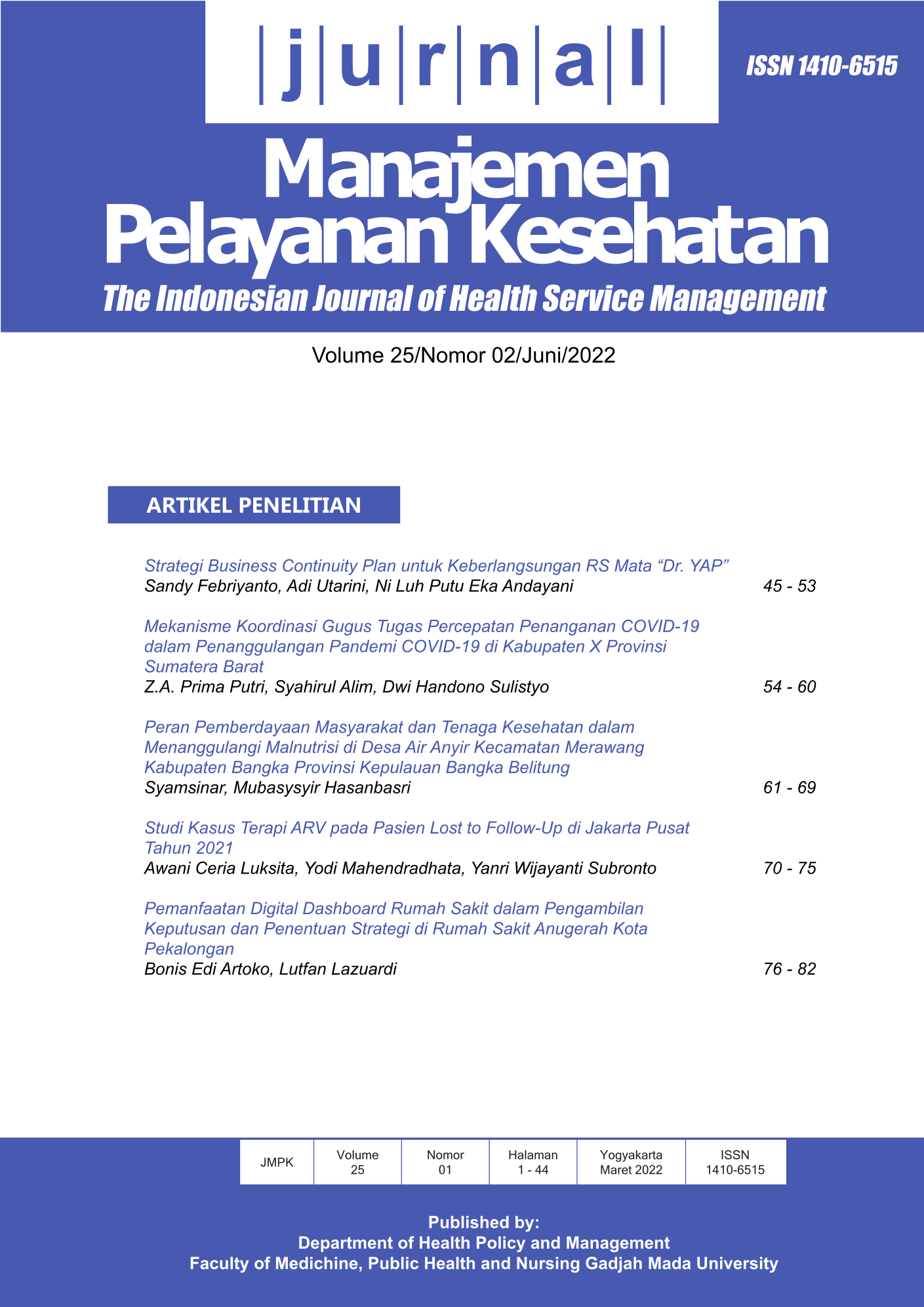STUDI KASUS TERAPI ARV PADA PASIEN LOST TO FOLLOW-UP DI JAKARTA PUSAT TAHUN 2021
Abstract
Background: There are 9,338 patients undergoing ARV therapy in Central Jakarta and based on data from April to June 2021, 3,651
people are missing due to follow-up. Lost To Follow-Up (LTFU) is when the patient does not revisit after three months or more after the
last visit. Objective: Knowing the factors influencing ARV therapy in LTFU patients in Central Jakarta.
Methods: This research is a case study research with a total of 12 informants consisting of LTFU patients, NGOs, doctors, and nurses
from the priority health office in Central Jakarta. Data collection techniques using in-depth interviews and document review. Data analysis using framework analysis technique. Results: This study shows that the experience of LTFU patients when
initially diagnosed with HIV experienced a pause in ARV therapy because they could not accept themselves as being HIV positive, and
some patients still did not understand ARV therapy treatment. ARV therapy decision-making is based on the motivation to be healthy and
want to see the child’s growth and development into adulthood. Patients feel that undergoing ARV therapy adds to activities that make
them unable to adjust their medication schedule, hampering work time because they must go to drug collection services. Some also
often forget to bring medicine and feel the need to hide to take medicine when outside the house. The inhibiting factors for LTFU patients
are the effects of drugs; the COVID-19 pandemic condition; feeling healthy; tired of undergoing therapy; being far from health services,
the number of costs incurred to go to services; not receiving complete information; and loss of support from the closest people.
Conclusion: The government needs to improve strategies for LTFU patients to return to ARV therapy by optimizing the multi-month dispensing (MMD) program; inviting and providing education for family members or relatives of LTFU patients to take ARV therapy treatment by becoming a Drug Swallowing Supervisor (PMO); and it is important to support the design of HIV treatment telemedicine during the COVID-19 pandemic.
Copyright (c) 2022 Awani Luksita

This work is licensed under a Creative Commons Attribution-NonCommercial-ShareAlike 4.0 International License.

